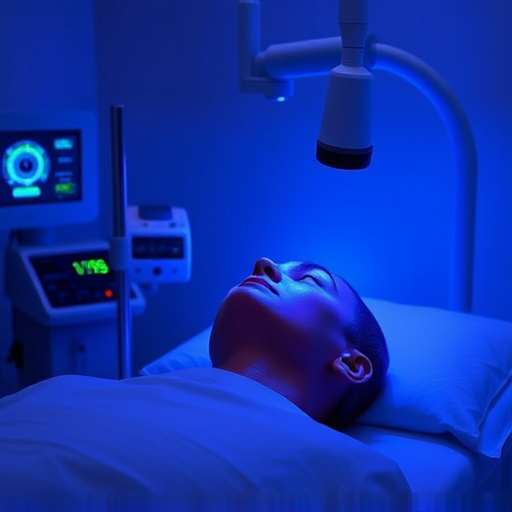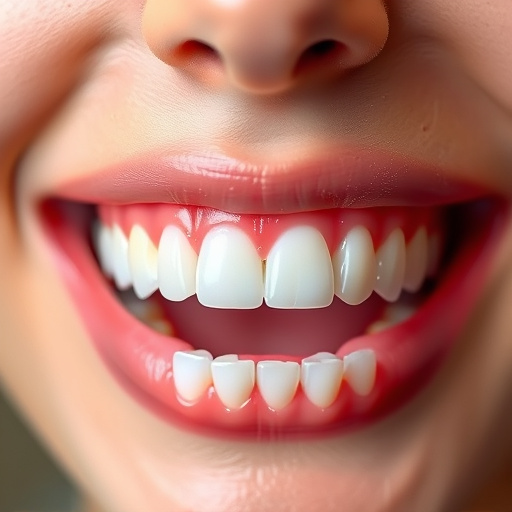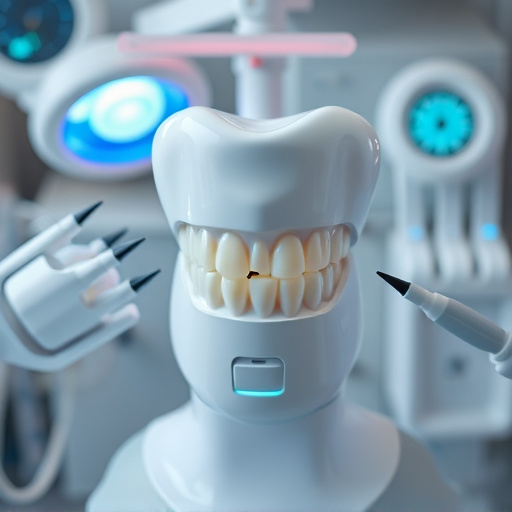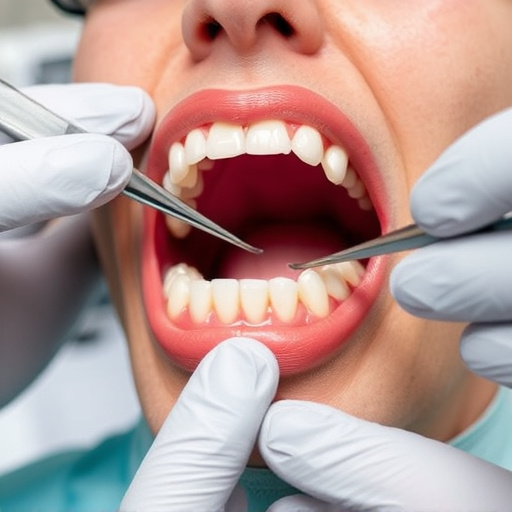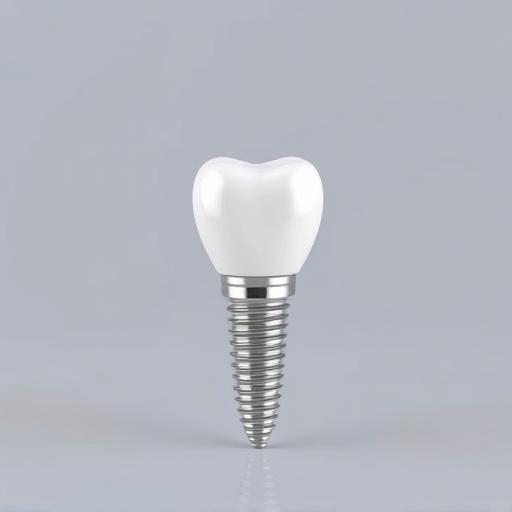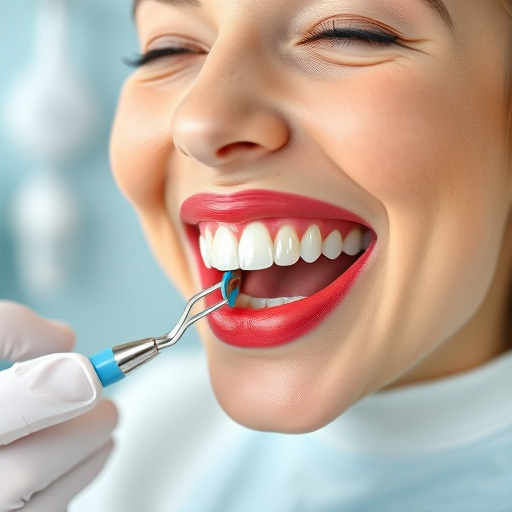Nutrition plays a vital role in preventive dentistry, with a balanced diet fortifying teeth and gums. Reducing sugar intake, incorporating omega-3 fatty acids, and increasing calcium, vitamin D, and fiber intake are key. A personalized dietary approach, combining education and tracking progress, is crucial for successful preventive programs. Integrating these measures with cosmetic dentistry can motivate individuals, demonstrating the holistic benefits of comprehensive dental care.
“Discover the power of preventative dentistry through nutrition! This comprehensive guide explores how dietary choices significantly impact dental health. We’ll delve into strategies to build a balanced diet, focusing on foods that foster strong teeth and gums. Learn effective ways to implement and track changes, ensuring optimal results. By embracing these practices, you can actively contribute to your oral well-being and become an integral part of any preventative dentistry program.”
- Understanding the Role of Nutrition in Dental Health
- Strategies for Building a Healthy Diet Plan
- Implementing and Tracking Changes for Optimal Results
Understanding the Role of Nutrition in Dental Health
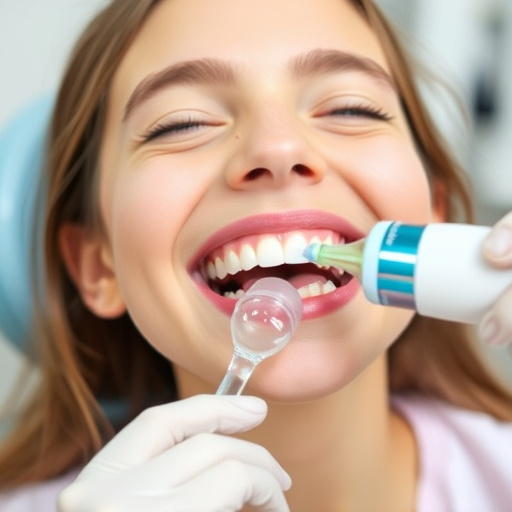
In the realm of preventive dentistry, understanding the profound impact of nutrition on dental health is a game-changer. A well-balanced diet plays a pivotal role in maintaining oral wellness, serving as the foundation for strong teeth and gums. The food we consume directly influences the composition of our saliva, which is instrumental in neutralizing acids that erode tooth enamel, thus preventing cavities and other dental issues. A diet rich in calcium, phosphorus, and vitamin D, found primarily in dairy products, leafy greens, and fortified foods, strengthens teeth and supports gum health.
Moreover, certain nutrients like omega-3 fatty acids, found in fish and nuts, have anti-inflammatory properties that can reduce gum inflammation and disease risk. On the other hand, excessive sugar intake contributes to dental decay by fueling bacteria growth in the mouth. A preventive dentistry program that encourages a healthy diet aims to educate individuals on making informed food choices, thereby promoting oral health and potentially reducing the need for cosmetic procedures like dental fillings or bonding.
Strategies for Building a Healthy Diet Plan
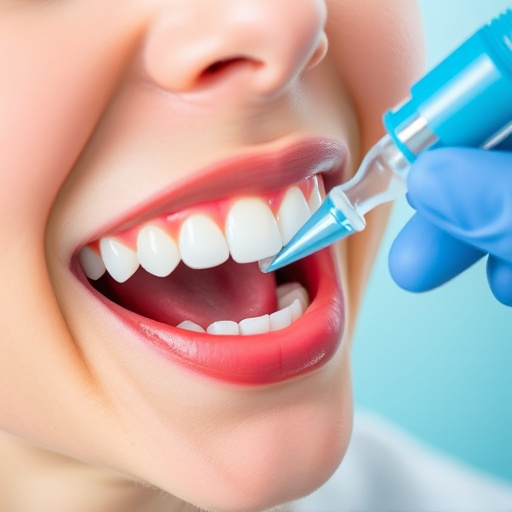
Creating a healthy diet plan is an essential step in any preventive dentistry program. Start by assessing your current eating habits and identifying areas for improvement. Set realistic goals, such as increasing fruit and vegetable intake or reducing sugary foods. A balanced diet rich in calcium, vitamin D, and phosphorus helps maintain strong teeth and gums, while whole grains provide essential fiber for overall oral health.
Incorporate variety into your meals to ensure you get a wide range of nutrients. Consult with a nutritionist if needed, as they can offer personalized advice. Remember that hydration is key; drinking water throughout the day helps wash away food particles and neutralizes acidic foods and beverages, which can erode tooth enamel. Pairing these dietary changes with regular brushing, flossing, and visits to your general dentistry office for comprehensive dental care will significantly contribute to a healthier smile.
Implementing and Tracking Changes for Optimal Results
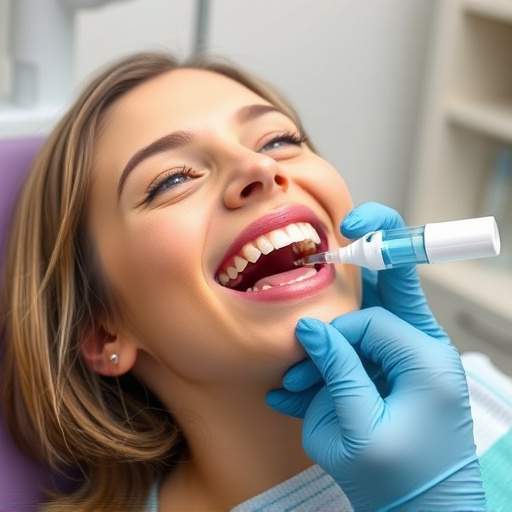
Implementing a preventive dentistry program involves more than just promoting oral hygiene; it’s about encouraging and supporting individuals to embrace healthier lifestyle choices. When introducing dietary changes, it’s crucial to tailor recommendations to personal preferences and cultural contexts. A successful program provides education on evidence-based nutrition, offering practical tips for incorporating beneficial foods while gradually phasing out less healthy options. This process allows participants to make sustainable adjustments, ensuring they stay motivated and committed to their dental health goals.
Tracking progress is an integral part of the journey. Using tools like tracking apps or regular check-ins with dental professionals can help individuals monitor their diet and oral hygiene practices. Identifying areas for improvement and celebrating achievements reinforce positive behaviors. Moreover, combining this approach with clear aligners or other cosmetic dentistry solutions like dental implants can further incentivize participants, showcasing the transformative power of comprehensive dental care in achieving optimal oral health and an enhanced quality of life.
A preventive dentistry program that encourages a healthy diet is a proactive approach to oral health. By understanding the impact of nutrition on dental wellness, individuals can make informed choices to build a balanced diet plan. Implementing these strategies and tracking progress ensures optimal results, fostering a foundation for long-term oral health and overall well-being.

